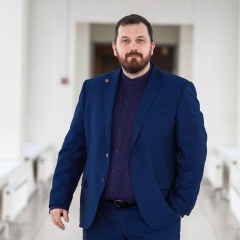Как правило, имена собственные в английском языке употребляются без артикля!!!!!!!!!!!!!!!!!!И после этого русский странный язык?
К именам собственным английского языка, употребляемым с артиклем, относятся:
1) названия стран света, географические названия: the North /the South Pole - Северный/Южный полюс; the Arctic - Арктика; the Antarctic - Антарктика; the North/ South - юг/север (не путать с омонимичными наречиямиsouth/ north - на юг/ на север;
2) названия океанов, морей, рек, каналов, проливов, озер и т.п.: the Pacific (Ocean), the Atlantic (Ocean), the Indian Ocean; the Baltic (Sea), the Black Sea; the (river) Volga; the Panama Canal; the English Channel; the Bering Strait; the Baikal, the Ontario (Ho: Lake Baikal, Lake Ontario);
3) названия заливов, если в их составе есть of-фраза: the Bay of Bengal - Бенгальский залив, но чаще без артикля: Hudson Bay, Baffin Bay;
4) названия горных цепей и групп островов: the Alps, the Urals, the Rocky Mountains (=the Rockies); the Bermudas, the Canary Islands. Названия отдельных горных вершин и островов обычно артикля не имеют: Everest, Elbrus; Cuba, Cyprus, Corsica.Артикль используется, когда в названии он есть в родном европейском языке: the Matterhorn, the Maije. Ho: Mont Blank;
5) названия пустынь: the Sahara, the Gobi, the Karakum;
6)названия полуостровов, если в названии упоминается не только имя собственное: the Balkan Peninsula, the Kola Peninsula. Ho: Indo-China, Labrador;
7) названия стран, которые содержат имя нарицательное: the People’s Republic of China, the United Arab Emirates, the USA, the ex-USSR. Артикль, как правило, опускается на географических картах, табличках, ярлыках и т.п.;
8) названия некоторых других стран, местностей и регионов, а также в названии города Гаага: the Netherlands, the Argentine, the Congo, the Crimea, the Ruhr, the Midwest; the Hague/ Ho: Argentine, Ukraine u т.п.;
9) названия кораблей: the Sedov, the Queen Mary, the Titanic;
10) названия газет: the Times, the Guardian. Ho: Izvestia, Pravda;
11) названия кинотеатров и театров: the Odeon (Cinema), the Globe (Theatre);
12) названия гостиниц: the Savoy (Hotel), the Ambassador Hotel;
13) названия отдельных парков, улиц и площадей, если эти названия являются иностранными: the Botanical Gardens, the High/ Main street, the Strand, the Tiergarten;
14) названия музеев, галерей, концертных залов, клубов: the British Museum, the Tate (Gallery); the Festival Hall; the Rotary Club;
I5) названия отдельных зданий: the Old Bailey, the Tower, the Royal Exchange. Ho: Scotland Yard, Westminster Abbey;
16) названия территорий, включающих нарицательные существительные: the Lake District, the Yorkshire Forests, the Tomsk Region;
17) названия государственных институтов, организаций и политических партий: the Supreme Soviet, the Duma; the Liberal Party, the Church; the City Council. Ho: Parliament;
I8) названия языков, если за ними следует слово language: the English language, the Italian language;
I9) географические названия, употребляемые, как правило, без артикля, если у этого названия имеется лимитирующее определение: Inhisnovels Walter Scott described the England of Middle Ages;
20) фамилии в форме множественного числа, называющие всю семью в целом: the Forsytes - Форсайты; the Petrovs - Петровы. Иногда существительное, обозначающее имя человека, может употребляться с определенным или неопределенным артиклем. В таких случаях определенный артикль подчеркивает исключительность данной личности и соответствует русскому «тот самый», «знаменитый». Неопределенный артикль английского языка , стоящий перед именем, несет противоположное значение: «какой-то», «некий». Например: Is he the Mr Johnson? – No, he is a Мr Johnson;
2I) в английском языке следующие слова, входящие в состав географических названий, употребляются с определенным артиклем и в их нарицательном значении: thecountry - сельская местность; thesea - море; theseaside - берег моря; themountains - горы.
22) названия национальностей при обозначении нации в целом: the French
К именам собственным английского языка, употребляемым с артиклем, относятся:
1) названия стран света, географические названия: the North /the South Pole - Северный/Южный полюс; the Arctic - Арктика; the Antarctic - Антарктика; the North/ South - юг/север (не путать с омонимичными наречиямиsouth/ north - на юг/ на север;
2) названия океанов, морей, рек, каналов, проливов, озер и т.п.: the Pacific (Ocean), the Atlantic (Ocean), the Indian Ocean; the Baltic (Sea), the Black Sea; the (river) Volga; the Panama Canal; the English Channel; the Bering Strait; the Baikal, the Ontario (Ho: Lake Baikal, Lake Ontario);
3) названия заливов, если в их составе есть of-фраза: the Bay of Bengal - Бенгальский залив, но чаще без артикля: Hudson Bay, Baffin Bay;
4) названия горных цепей и групп островов: the Alps, the Urals, the Rocky Mountains (=the Rockies); the Bermudas, the Canary Islands. Названия отдельных горных вершин и островов обычно артикля не имеют: Everest, Elbrus; Cuba, Cyprus, Corsica.Артикль используется, когда в названии он есть в родном европейском языке: the Matterhorn, the Maije. Ho: Mont Blank;
5) названия пустынь: the Sahara, the Gobi, the Karakum;
6)названия полуостровов, если в названии упоминается не только имя собственное: the Balkan Peninsula, the Kola Peninsula. Ho: Indo-China, Labrador;
7) названия стран, которые содержат имя нарицательное: the People’s Republic of China, the United Arab Emirates, the USA, the ex-USSR. Артикль, как правило, опускается на географических картах, табличках, ярлыках и т.п.;
8) названия некоторых других стран, местностей и регионов, а также в названии города Гаага: the Netherlands, the Argentine, the Congo, the Crimea, the Ruhr, the Midwest; the Hague/ Ho: Argentine, Ukraine u т.п.;
9) названия кораблей: the Sedov, the Queen Mary, the Titanic;
10) названия газет: the Times, the Guardian. Ho: Izvestia, Pravda;
11) названия кинотеатров и театров: the Odeon (Cinema), the Globe (Theatre);
12) названия гостиниц: the Savoy (Hotel), the Ambassador Hotel;
13) названия отдельных парков, улиц и площадей, если эти названия являются иностранными: the Botanical Gardens, the High/ Main street, the Strand, the Tiergarten;
14) названия музеев, галерей, концертных залов, клубов: the British Museum, the Tate (Gallery); the Festival Hall; the Rotary Club;
I5) названия отдельных зданий: the Old Bailey, the Tower, the Royal Exchange. Ho: Scotland Yard, Westminster Abbey;
16) названия территорий, включающих нарицательные существительные: the Lake District, the Yorkshire Forests, the Tomsk Region;
17) названия государственных институтов, организаций и политических партий: the Supreme Soviet, the Duma; the Liberal Party, the Church; the City Council. Ho: Parliament;
I8) названия языков, если за ними следует слово language: the English language, the Italian language;
I9) географические названия, употребляемые, как правило, без артикля, если у этого названия имеется лимитирующее определение: Inhisnovels Walter Scott described the England of Middle Ages;
20) фамилии в форме множественного числа, называющие всю семью в целом: the Forsytes - Форсайты; the Petrovs - Петровы. Иногда существительное, обозначающее имя человека, может употребляться с определенным или неопределенным артиклем. В таких случаях определенный артикль подчеркивает исключительность данной личности и соответствует русскому «тот самый», «знаменитый». Неопределенный артикль английского языка , стоящий перед именем, несет противоположное значение: «какой-то», «некий». Например: Is he the Mr Johnson? – No, he is a Мr Johnson;
2I) в английском языке следующие слова, входящие в состав географических названий, употребляются с определенным артиклем и в их нарицательном значении: thecountry - сельская местность; thesea - море; theseaside - берег моря; themountains - горы.
22) названия национальностей при обозначении нации в целом: the French
As a rule, proper names in English are used without an article !!!!!!!!!!!!!!!!!! And then Russian is a strange language?
The proper English names used with an article include:
1) the names of countries of the world, geographical names: the North / the South Pole - the North / South Pole; the Arctic - the Arctic; the Antarctic - Antarctica; the North / South - south / north (not to be confused with homonymous adverbs south / north - south / north;
2) the names of oceans, seas, rivers, canals, straits, lakes, etc .: the Pacific (Ocean), the Atlantic (Ocean), the Indian Ocean; the Baltic (Sea), the Black Sea; the (river) Volga; the Panama Canal; the English Channel; the Bering Strait; the Baikal, the Ontario (Ho: Lake Baikal, Lake Ontario);
3) the names of bays, if they include a phrase: the Bay of Bengal - the Bay of Bengal, but more often without the article: Hudson Bay, Baffin Bay;
4) the names of mountain ranges and island groups: the Alps, the Urals, the Rocky Mountains (= the Rockies); the Bermudas, the Canary Islands. The names of individual mountain peaks and islands usually do not have an article: Everest, Elbrus; Cuba, Cyprus, Corsica. An article is used when it is in its name in its native European language: the Matterhorn, the Maije. Ho: Mont Blank;
5) the names of the deserts: the Sahara, the Gobi, the Karakum;
6) the names of the peninsulas, if the name mentions not only the proper name: the Balkan Peninsula, the Kola Peninsula. Ho: Indo-China, Labrador;
7) the names of countries that contain the common name: the People’s Republic of China, the United Arab Emirates, the USA, the ex-USSR. The article, as a rule, falls on geographical maps, tablets, labels, etc .;
8) the names of some other countries, localities and regions, as well as in the name of the city of The Hague: the Netherlands, the Argentine, the Congo, the Crimea, the Ruhr, the Midwest; the Hague / Ho: Argentine, Ukraine u etc .;
9) ship names: the Sedov, the Queen Mary, the Titanic;
10) Newspaper titles: the Times, the Guardian. Ho: Izvestia, Pravda;
11) the names of cinemas and theaters: the Odeon (Cinema), the Globe (Theater);
12) hotel names: the Savoy (Hotel), the Ambassador Hotel;
13) the names of individual parks, streets and squares, if these names are foreign: the Botanical Gardens, the High / Main street, the Strand, the Tiergarten;
14) the names of museums, galleries, concert halls, clubs: the British Museum, the Tate (Gallery); the Festival Hall; the Rotary Club;
I5) the names of individual buildings: the Old Bailey, the Tower, the Royal Exchange. Ho: Scotland Yard, Westminster Abbey;
16) names of territories including common nouns: the Lake District, the Yorkshire Forests, the Tomsk Region;
17) the names of state institutions, organizations and political parties: the Supreme Soviet, the Duma; the Liberal Party, the Church; the City Council. Ho: Parliament;
I8) language names, if followed by the word language: the English language, the Italian language;
I9) place names, usually used without the article, if this name has a limiting definition: Inhisnovels Walter Scott described the England of the Middle Ages;
20) the plural names of the family as a whole: the Forsytes - Forsytes; the Petrovs - Petrovs. Sometimes a noun denoting a person’s name can be used with a definite or indefinite article. In such cases, the definite article emphasizes the exclusivity of the person and corresponds to the Russian "that", "famous". The indefinite article of the English language, which stands before the name, has the opposite meaning: “some”, “some”. For example: Is he the Mr Johnson? - No, he is a Mr Johnson;
2I) in English, the following words that are part of geographical names are used with a definite article and in their nominal meaning: thecountry - rural area; thesea is the sea; theseaside - seashore; themountains - mountains.
22) the names of nationalities in the designation of the nation as a whole: the French
The proper English names used with an article include:
1) the names of countries of the world, geographical names: the North / the South Pole - the North / South Pole; the Arctic - the Arctic; the Antarctic - Antarctica; the North / South - south / north (not to be confused with homonymous adverbs south / north - south / north;
2) the names of oceans, seas, rivers, canals, straits, lakes, etc .: the Pacific (Ocean), the Atlantic (Ocean), the Indian Ocean; the Baltic (Sea), the Black Sea; the (river) Volga; the Panama Canal; the English Channel; the Bering Strait; the Baikal, the Ontario (Ho: Lake Baikal, Lake Ontario);
3) the names of bays, if they include a phrase: the Bay of Bengal - the Bay of Bengal, but more often without the article: Hudson Bay, Baffin Bay;
4) the names of mountain ranges and island groups: the Alps, the Urals, the Rocky Mountains (= the Rockies); the Bermudas, the Canary Islands. The names of individual mountain peaks and islands usually do not have an article: Everest, Elbrus; Cuba, Cyprus, Corsica. An article is used when it is in its name in its native European language: the Matterhorn, the Maije. Ho: Mont Blank;
5) the names of the deserts: the Sahara, the Gobi, the Karakum;
6) the names of the peninsulas, if the name mentions not only the proper name: the Balkan Peninsula, the Kola Peninsula. Ho: Indo-China, Labrador;
7) the names of countries that contain the common name: the People’s Republic of China, the United Arab Emirates, the USA, the ex-USSR. The article, as a rule, falls on geographical maps, tablets, labels, etc .;
8) the names of some other countries, localities and regions, as well as in the name of the city of The Hague: the Netherlands, the Argentine, the Congo, the Crimea, the Ruhr, the Midwest; the Hague / Ho: Argentine, Ukraine u etc .;
9) ship names: the Sedov, the Queen Mary, the Titanic;
10) Newspaper titles: the Times, the Guardian. Ho: Izvestia, Pravda;
11) the names of cinemas and theaters: the Odeon (Cinema), the Globe (Theater);
12) hotel names: the Savoy (Hotel), the Ambassador Hotel;
13) the names of individual parks, streets and squares, if these names are foreign: the Botanical Gardens, the High / Main street, the Strand, the Tiergarten;
14) the names of museums, galleries, concert halls, clubs: the British Museum, the Tate (Gallery); the Festival Hall; the Rotary Club;
I5) the names of individual buildings: the Old Bailey, the Tower, the Royal Exchange. Ho: Scotland Yard, Westminster Abbey;
16) names of territories including common nouns: the Lake District, the Yorkshire Forests, the Tomsk Region;
17) the names of state institutions, organizations and political parties: the Supreme Soviet, the Duma; the Liberal Party, the Church; the City Council. Ho: Parliament;
I8) language names, if followed by the word language: the English language, the Italian language;
I9) place names, usually used without the article, if this name has a limiting definition: Inhisnovels Walter Scott described the England of the Middle Ages;
20) the plural names of the family as a whole: the Forsytes - Forsytes; the Petrovs - Petrovs. Sometimes a noun denoting a person’s name can be used with a definite or indefinite article. In such cases, the definite article emphasizes the exclusivity of the person and corresponds to the Russian "that", "famous". The indefinite article of the English language, which stands before the name, has the opposite meaning: “some”, “some”. For example: Is he the Mr Johnson? - No, he is a Mr Johnson;
2I) in English, the following words that are part of geographical names are used with a definite article and in their nominal meaning: thecountry - rural area; thesea is the sea; theseaside - seashore; themountains - mountains.
22) the names of nationalities in the designation of the nation as a whole: the French
У записи 1 лайков,
1 репостов.
1 репостов.
Эту запись оставил(а) на своей стене Юлия Усердная






















